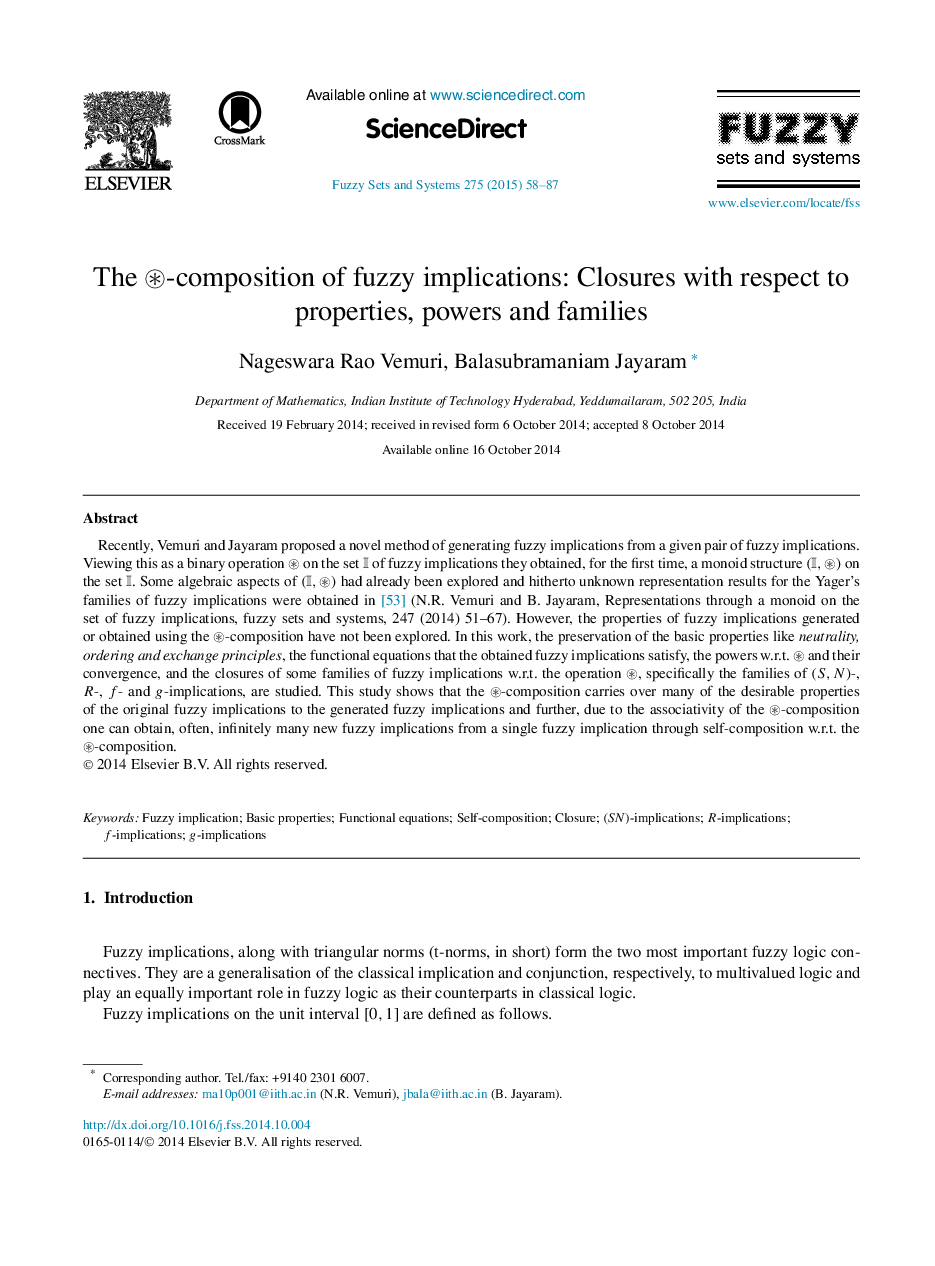| Article ID | Journal | Published Year | Pages | File Type |
|---|---|---|---|---|
| 389151 | Fuzzy Sets and Systems | 2015 | 30 Pages |
Recently, Vemuri and Jayaram proposed a novel method of generating fuzzy implications from a given pair of fuzzy implications. Viewing this as a binary operation ⊛ on the set II of fuzzy implications they obtained, for the first time, a monoid structure (I,⊛)(I,⊛) on the set II. Some algebraic aspects of (I,⊛)(I,⊛) had already been explored and hitherto unknown representation results for the Yager's families of fuzzy implications were obtained in [53] (N.R. Vemuri and B. Jayaram, Representations through a monoid on the set of fuzzy implications, fuzzy sets and systems, 247 (2014) 51–67). However, the properties of fuzzy implications generated or obtained using the ⊛-composition have not been explored. In this work, the preservation of the basic properties like neutrality, ordering and exchange principles , the functional equations that the obtained fuzzy implications satisfy, the powers w.r.t. ⊛ and their convergence, and the closures of some families of fuzzy implications w.r.t. the operation ⊛, specifically the families of (S,N)(S,N)-, R-, f- and g-implications, are studied. This study shows that the ⊛-composition carries over many of the desirable properties of the original fuzzy implications to the generated fuzzy implications and further, due to the associativity of the ⊛-composition one can obtain, often, infinitely many new fuzzy implications from a single fuzzy implication through self-composition w.r.t. the ⊛-composition.
